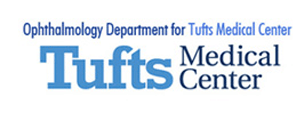
Cataracts are a very common condition in individuals over the age of 40. Even though they are common, they can be quite troublesome.
Left untreated, cataracts can worsen to the point of blindness. In fact, they’re the leading cause of blindness in adults.
Luckily, cataracts are treatable with cataract surgery. Cataract surgery can even reverse blindness caused by cataracts.
Doctors suggest having cataract surgery when cataracts begin to affect the quality of life. But what if you aren’t a good candidate for cataract surgery?
Can you be a bad candidate? It’s very rare, but it is possible! Keep reading to learn about some of the conditions that may make it unsafe for you to have cataract surgery!
Risk Factors
There are a few diseases and conditions that can make cataract surgery difficult. The following conditions have a chance of worsening if you undergo cataract surgery:
Diabetic Retinopathy
Having diabetes can make surgery of any kind difficult in general. If your diabetes is under control, it’s usually safe to undergo procedures like cataract surgery.
The exception may be if the patient has diabetic retinopathy. Studies have shown that cataract surgery can speed up the progression of retinopathy.
Macular Degeneration
Studies about the effects of cataract surgery on age-related macular degeneration are inconsistent. Some studies show a correlation between cataract surgery and high rates of macular degeneration.
The evidence isn’t solid, but it’s enough to warrant caution when a patient has macular degeneration.
Retinal Vein Occlusion
If you have a blocked retinal vein–called a retinal vein occlusion, it’s treated with a corticosteroid injected into the eye. Steroids often cause a higher risk for cataracts.
Patients with RVO who receive cataract surgery have an increased risk of developing a cystoid macular edema.
Epiretinal Membrane
An epiretinal membrane is a thin film of tissue on the retina. It can also lead to increased risk for cystoid macular edema after cataract surgery. Moving the vitreous while removing the lens during surgery can cause other problems.
This can include increased vitreomacular traction. This means that the vitreous gel adheres to the retina and can pull at it, causing retinal distortion.
What to Do if You’re Considered High Risk
If you have any of these risk factors, you may not be a bad candidate for cataract surgery. It depends on both the severity of your condition along with the severity of your cataracts.
The risk of complications may be worth having your cataracts removed. There are also methods and techniques that surgeons can use to work around these risks.
Talk to your doctor about what your risks may be and whether cataract surgery is right for you. If you’re looking for a consultation, try New England Eye Center.
We have many cataract surgery specialists who can help determine what’s best for you. Schedule a cataract surgery consultation at New England Eye Center in the greater Boston area! If you’re tired of dealing with cataracts, this is the first step towards clearer vision.




